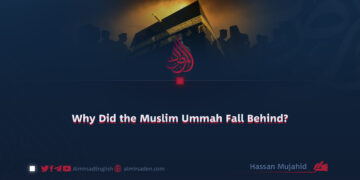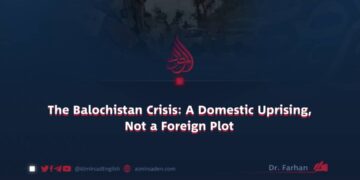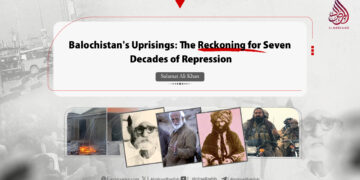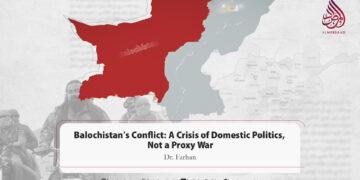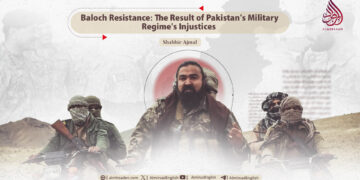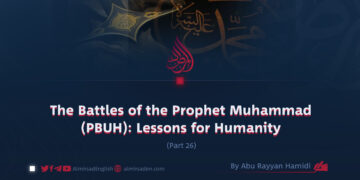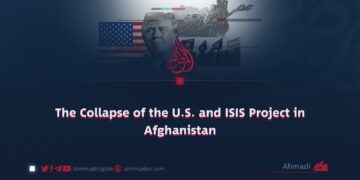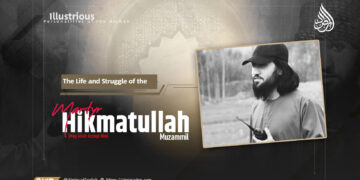Author: Ahmad Armaghan
Following the defeat of the former Soviet occupation, the Afghan people were filled with hope and anticipation. There was a widespread belief that the time had come to celebrate victory, rebuild the country, and establish an inclusive Islamic government capable of unifying the nation and projecting Afghanistan onto the global stage as a sovereign and dignified state. Unfortunately, these aspirations were soon overshadowed by the grim realities of internal strife.
With the support and manipulation of foreign intelligence agencies, various jihadist factions—intoxicated by the allure of power—plunged the country into a devastating civil war. This conflict not only inflicted more destruction upon Afghanistan’s fragile institutions than the Soviet invasion but also fractured the nation along ethnic, linguistic, and regional lines, fueling divisions that had previously remained dormant.
Consequently, the endeavors to preserve the jihadist legacies and national pride against the Soviet Union were also thwarted. Former mujahideen leaders became entangled in political bargaining, ethnic bias, and personal interests. Kabul, the heart of the nation, was reduced to ruins.
Despite multiple domestic and international efforts to restore peace and curtail the ambitions of these power-driven leaders, reconciliation proved elusive. Armed with weapons, foreign support, and an insatiable hunger for dominance, these warlords dismissed any notion of negotiation or compromise.
It was perhaps in this bleak and despairing chapter of Afghan history that divine mercy descended upon the nation, and the supplications of God-fearing people were answered. From among the people emerged a humble and saintly leader—a savior—who, with unshakable resolve, exceptional courage, and the unwavering support of devoted companions, succeeded in bringing the civil war to an end through decisive military action.
That saintly, humble-spirited leader was none other than the late Mullah Muhammad Omar Mujahid (may Allah have mercy on him), A man honored for his role in the jihad against the Soviets. Unlike many others, he did not become entangled in the civil war that followed. Instead, after closely observing the situation, he laid the foundation for the Islamic Taliban Movement. In a remarkably short time, from Kandahar to Kabul, he dismantled the warlords’ grip and restored a semblance of unity to a fractured nation.The struggle demanded immense sacrifices, but the Afghan people—longing for deliverance—rallied behind him with their lives and wealth. His companions were even likened to saving angels, a title they rightfully earned.
Many international historians and researchers remain astonished at how a man devoted to teaching in a humble madrasa and leading prayers in a mosque could conceive the bold idea of ending a brutal civil war—and, more remarkably, succeed in executing it with limited resources and unshakable resolve. As foreign intelligence networks and disempowered warlords—alarmed by their diminishing control—unleashed a torrent of propaganda and deceit against the movement, the great Mullah Sahib, at the helm of this mission, remained resolute. He was no ordinary man to be caught in such snares; rather, he resembled a soaring falcon—aloof from the intrigues of hypocrisy and impervious to the traps of manipulation.
Relying solely on divine support and the loyalty of sincere companions, he expelled the corrupt warlords from Kabul—those who had looted the national treasury and served foreign interests. He reminded them that winning independence is one challenge, but preserving it demands sacrifice, sincerity, and the courage to confront betrayal. Their betrayal of the jihad and the martyrs, would be answered not only in this world but more severely in the hereafter.
The legacy of Mullah Muhammad Omar Mujahid (may Allah have mercy on him) offers profound lessons, among which five stand out:
1. Unwavering Faith and Clear Vision
Every successful struggle begins with a clear vision and unwavering determination. The ideology of Mullah Muhammad Omar Mujahid and the founding philosophy of the Islamic Emirate of Afghanistan (IEA) were firmly rooted in the aspiration to present an authentic image of Islam, to eradicate centers of evil and corruption, and to establish lasting peace and stability for the Afghan nation. He placed complete trust in his Islamic faith and spiritual conviction, gathering around him a circle of principled and like-minded companions. His steadfastness never faltered—for he understood that firm resolve is the cornerstone of triumph. And in that resolve, he ultimately prevailed.
In his vision, there was no room for compromise—and it was precisely this unwavering stance that earned him a permanent place in the hearts of the people. He remained steadfast until the very end. A defining feature of his ideology was the conviction that religious scholars must not confine themselves solely to the walls of madrasas and mosques. Unless they are prepared to engage in armed struggle and master the intricacies of governance, they cannot effectively confront the challenges of the time or counter the conspiracies aimed at undermining Islam. Mere sermons and preaching, he believed, were insufficient; the demands of the era called for sacrifice and a comprehensive transformation of the system into one that truly embodied Islamic governance.
2. Public Support and Popularity
Even before founding and leading the Islamic movement, Mullah Muhammad Omar Mujahid was widely known among his people as a sincere and respected scholar and elder. He had never bartered his legacy as a committed mujahid for wealth, political power, or personal gain—making him a figure of unwavering integrity in the eyes of the public. The formation of his movement was not born of ambition, but out of pressing necessity, and was shaped through consultation with his close companions and local community. It was this sincerity that garnered profound public trust, prompting people to offer their lives and wealth in support of his cause. In the end, the long-held yearning of the Afghan people was realized—he brought an end to the civil war and fulfilled a national aspiration.
3. Spirit of Sacrifice and Selflessness
Throughout the era of the previous Islamic Emirate, the armed struggle persisted with unwavering intensity until the very end. From across the many fronts, martyrs and wounded fighters continuously poured in, testifying to the relentless sacrifices being made. On the other side, the forces of corruption and evil, backed by their foreign patrons and fueled by the looted remnants of Soviet funds and public wealth, waged their war. Yet, against these formidable odds, the (IEA) managed to hoist the banner of peace and stability over most of Afghanistan, with the exception of the Panjshir region. This period became a profound lesson for all Islamic movements and defenders of the homeland: no struggle attains victory without sacrifice, endurance of wounds, and an unbreakable resolve.
4. Rising Above Personal Interests
In Mullah Sahib’s struggle, the vision of building a unified nation and sovereign Islamic system was, for the first time in decades, earnestly and coherently articulated—reviving the long-cherished dream once envisioned by the great Ahmad Shah Baba: that Afghanistan belongs to all Afghans, and its integrity is a collective responsibility.Throughout his leadership, Mullah Sahib unfailingly prioritized national unity and public welfare over personal interests or factional considerations. This unwavering principle has since endured as a foundational lesson for the Islamic Emirate—underscoring that genuine leadership is defined by selflessness, sacrifice, and an unshakable commitment to the collective good.
5. Firmness and Anti-Dependency Ideology
It was once widely believed that no ideological or military movement could succeed without foreign backing. But Mullah Sahib shattered that notion, proving to Afghans that a movement rooted in the people, grounded in faith in God, and reliant on its own resources may face delays—but its victory is lasting. The enduring influence of the IEA’s ideology, which has survived for over three decades and reemerged with strength even after his passing, stands as proof. Today, its flag once again flies over the Arg, a testament to his steadfastness and rejection of foreign dependence.
In conclusion, had it not been for the sacrifices and leadership of Mullah Muhammad Omar Mujahid, and the courage of his devoted companions, Afghanistan might still be trapped in endless war and foreign manipulation. Today, by the grace of Allah, Afghanistan is among the most secure nations in the region, operates independently on its national resources, and is free from foreign debt—an outcome made possible by the visionary leadership of Mullah Muhammad Omar Mujahid (may Allah have mercy on him).
May Allah grant him the highest ranks in Paradise, and may He bestow upon the current leaders of the (IEA) the resolve to remain faithful to his vision and legacy.






